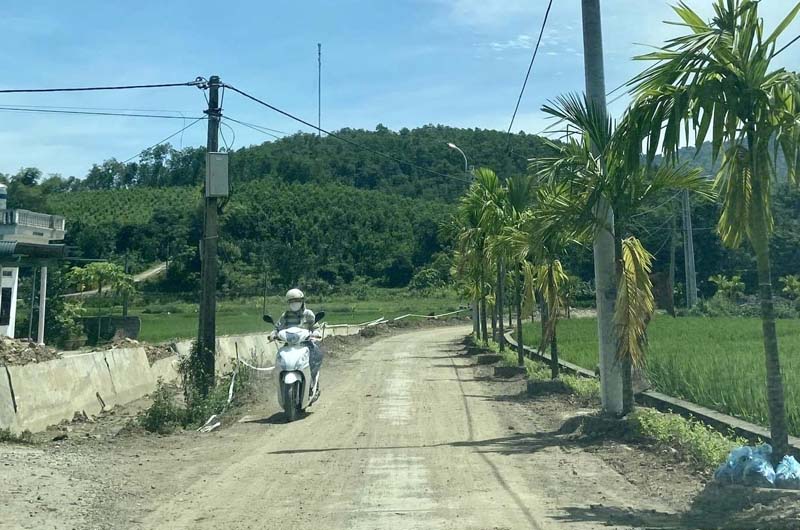
(HBO) - Moi Mit hamlet in Yen Mong commune, Hoa Binh province, was selected as the "village of culture and national defence” model in 2016, which has created important momentum for the locality to move forward and given a facelift to the hamlet.

All of the major
roads and routes in the hamlet have been cemented, facilitating travel of local
residents.
Over
the past seven years, the model has proven effective. Local authorities,
especially the military sector, have helped people in economic development,
environmental protection and cultural life building.
Ha
Ngoc Huyen, head of Moi Mit, said Hoa Binh city’s Military Command has
coordinated with departments, agencies and organisations to help the hamlet
build 300m of cemented road and 110m of canals, and repair and upgrade the
local cultural house and houses for two families in difficult circumstances.
They
have also mobilised more than 1,200 working days and over 300 million VND for
the construction of the hamlet gate, he said.
Competent
agencies have also popularised laws and provided consultations in agriculture
and forestry for local residents, contributing to the formation of successful
economic models in the locality.
The
communal military command and militiamen have played an important role in
helping local residents deal with consequences of natural disasters.
Moi
Mit has also stepped up the campaign on building the cultural life, as
reflected through the establishment of art clubs and the development of sports,
particularly volleyball.
At
the same time, the locality has preserved its traditional culture and customs. More
than 90 percent of local households have been recognised as cultural
families./.
The Standing Board of the Hoa Binh provincial Party Committee has agreed in principle on a proposal by the Standing Board of the Party Committee of Hoa Binh city to gather feedback on the city’s 1:2000 zoning plan, which forms part of its broader urban development strategy.
Hoa Binh province has made notable progress in public administration reform and digital government development, with the satisfaction index among citizens and businesses reaching over 84%, according to recent government evaluations.
Thanks to great efforts by local authorities in recent times, the governance and public administration performance of Mai Chau district has been significantly improved.
In the afternoon of June 6, the Party Committee, the People's Council, the People's Committee and the Fatherland Front of Lac Son district solemnly held a meeting to celebrate the 139th anniversary of the district's founding (1886–2025) and the 79th anniversary of the establishment of the district's Party Committee (1946–2025). There was the attendance of Mr. Bui Van Thang, the Vice Chairman of the Provincial People's Council; Mr. Quach Tat Liem, the Vice Chairman of the Provincial People's Committee; Ms. Dang Bich Ngoc, the Deputy Head of the National Assembly Delegation of the province; as well as the former leaders of the province and district through various periods, who are the natives of the district.
Implementing the Politburo’s Resolution No. 57-NQ/TW on breakthroughs in science – technology, innovation, and digital transformation is a golden opportunity for the northern mountainous province of Hoa Binh to renew growth model, improve competitive edge and shorten digital gap.
Resolution 57-NQ/TW, issued by the Politburo on December 22, 2024, identifies sci-tech, innovation, and digital transformation as strategic breakthroughs to build a developed and prosperous nation. In Hoa Binh province, this spirit is not just a slogan, it’s being put into action through concrete initiatives that form a "new development triangle”: digital citizenship, digital economy, and digital administration.



